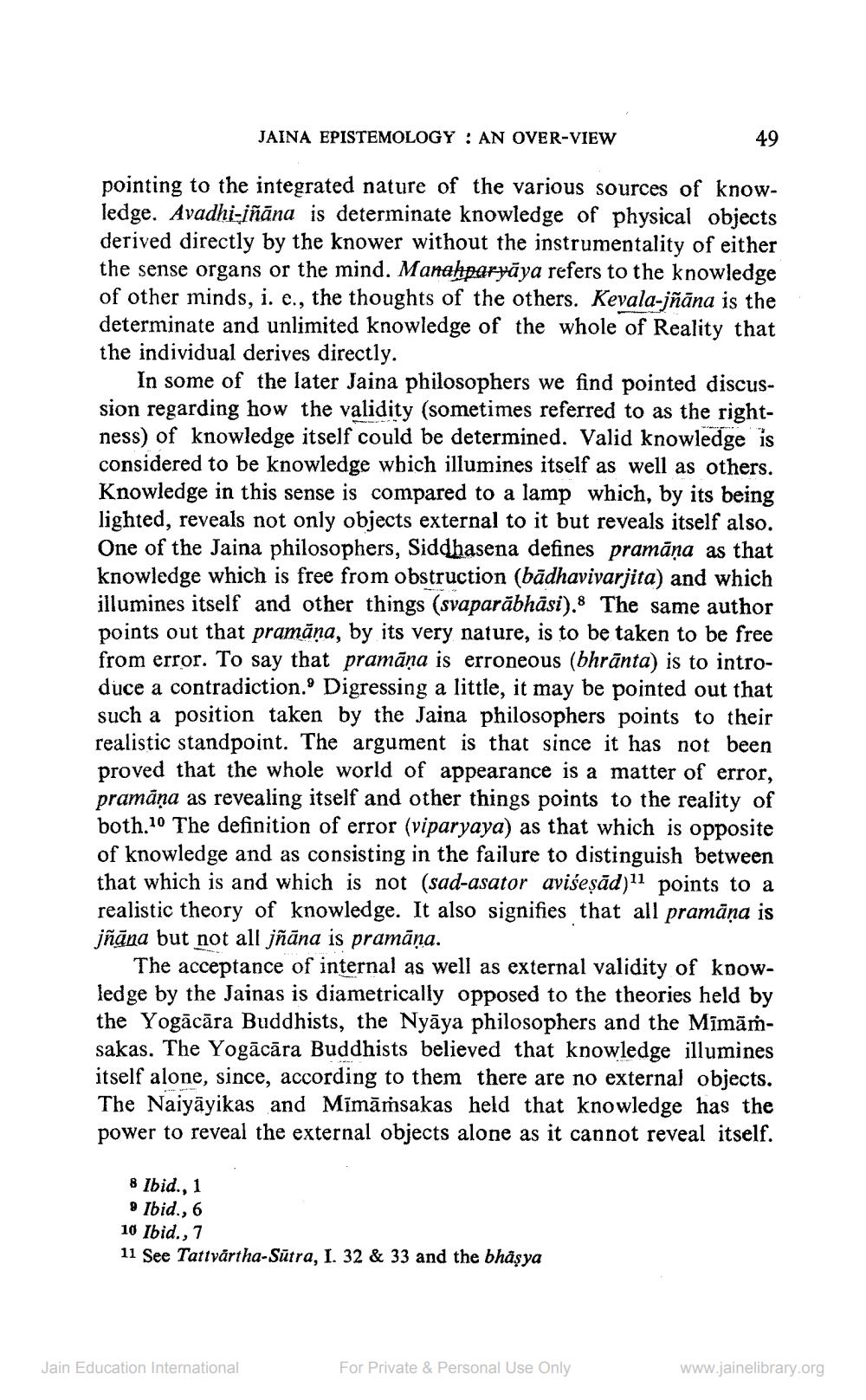________________
JAINA EPISTEMOLOGY : AN OVER-VIEW
pointing to the integrated nature of the various sources of knowledge. Avadhi-jñāna is determinate knowledge of physical objects derived directly by the knower without the instrumentality of either the sense organs or the mind. Manahparyāya refers to the knowledge of other minds, i. e., the thoughts of the others. Kevala-jñāna is the determinate and unlimited knowledge of the whole of Reality that the individual derives directly.
In some of the later Jaina philosophers we find pointed discussion regarding how the validity (sometimes referred to as the rightness) of knowledge itself could be determined. Valid knowledge is considered to be knowledge which illumines itself as well as others. Knowledge in this sense is compared to a lamp which, by its being lighted, reveals not only objects external to it but reveals itself also. One of the Jaina philosophers, Siddhasena defines pramāņa as that knowledge which is free from obstruction (bādhavivarjita) and which illumines itself and other things (svaparābhāsi). The same author points out that pramāna, by its very nature, is to be taken to be free from error. To say that pramāņa is erroneous (bhrānta) is to introduce a contradiction.o Digressing a little, it may be pointed out that such a position taken by the Jaina philosophers points to their realistic standpoint. The argument is that since it has not been proved that the whole world of appearance is a matter of error, pramāņa as revealing itself and other things points to the reality of both.10 The definition of error (viparyaya) as that which is opposite of knowledge and as consisting in the failure to distinguish between that which is and which is not (sad-asator aviseșād)11 points to a realistic theory of knowledge. It also signifies that all pramāņa is jñāna but not all jñāna is pramāņa.
The acceptance of internal as well as external validity of knowledge by the Jainas is diametrically opposed to the theories held by the Yogācāra Buddhists, the Nyāya philosophers and the Mīmāṁsakas. The Yogācāra Buddhists believed that knowledge illumines itself alone, since, according to them there are no external objects. The Naiyāyikas and Mīmāṁsakas held that knowledge has the power to reveal the external objects alone as it cannot reveal itself.
8 Ibid., 1 9 Ibid., 6 10 Ibid., 7 11 See Tattvärtha-Sūtra, I. 32 & 33 and the bhäşya
Jain Education International
For Private & Personal Use Only
www.jainelibrary.org




